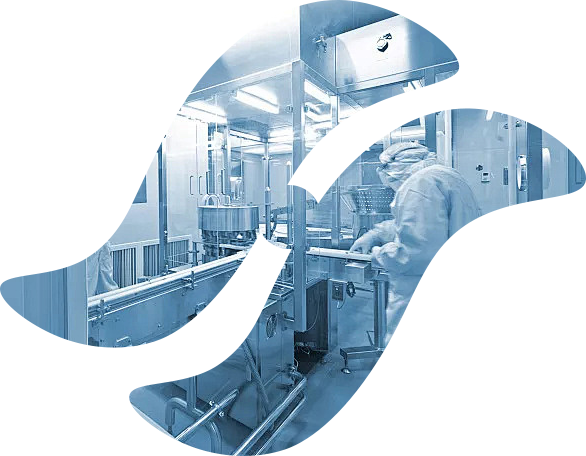MEMS Oscillator vs. Quartz Oscillator: A Comprehensive Comparison
When selecting a frequency control device, two of the most popular options are MEMS oscillators and Quartz oscillators. Both serve to provide stable, accurate frequency references, but they do so in different ways. As a quartz crystal oscillator manufacturer, it's important to understand the key differences between these two technologies in order to make an informed decision based on your specific needs.

1. Technology Overview
MEMS Oscillators
MEMS (Micro-Electro-Mechanical Systems) oscillators use micro-fabricated resonators made of silicon. These oscillators integrate mechanical and electrical components on a single chip, with tiny vibrating structures generating a stable frequency. MEMS oscillators are compact, lightweight, and typically consume less power, which makes them well-suited for smaller devices.
Quartz Oscillators
Quartz oscillators use the piezoelectric properties of a quartz crystal to generate a stable frequency. When an electric field is applied to the crystal, it vibrates at a specific frequency. This technology is highly precise and has been in use for many decades, providing unparalleled stability in demanding environments.
2. Performance Comparison
MEMS Oscillators
Size and Integration: Compact and suitable for integration into space-constrained environments.
Frequency Stability: Slightly lower than Quartz oscillators, but still suitable for many commercial applications.
Power Consumption: Lower power consumption, ideal for battery-powered devices.
Phase Noise: Typically higher phase noise compared to Quartz oscillators, which may impact applications requiring ultra-precise frequency stability.
Quartz Oscillators
Frequency Stability: Exceptional, especially in models like OCXO (Oven Controlled Crystal Oscillator) and TCXO (Temperature Compensated Crystal Oscillator), which offer stability over a wide temperature range.
Aging Rate: Very low aging rate, ensuring long-term reliability.
Precision: Outstanding precision, ideal for high-performance applications.
Phase Noise: Very low phase noise, making Quartz oscillators perfect for high-accuracy applications like telecommunications and military equipment.
3. Applications
MEMS Oscillators
MEMS oscillators are best suited for applications where size, power, and cost efficiency are crucial, such as:
Consumer electronics (smartphones, tablets, wearables)
IoT devices (sensors, smart home devices)
Automotive electronics
GPS systems and navigation
Quartz Oscillators
Quartz oscillators are preferred in fields that demand high precision and reliability, including:
Telecommunications (network synchronization, signal processing)
Military and aerospace (timing for communication systems, radar)
Industrial control systems (robotics, factory automation)
Precision instruments (scientific research, measurement devices)
4. Size and Integration: MEMS vs. Quartz
MEMS Oscillators:
Due to their micro-electromechanical design, MEMS oscillators are extremely small and can be integrated into tight spaces without sacrificing performance. This makes them ideal for modern, compact devices.
Quartz Oscillators:
Quartz oscillators, while typically larger in size, offer much greater precision and stability. They are generally used in applications where performance takes precedence over size.
5. Cost Considerations
MEMS Oscillators
MEMS oscillators tend to be more affordable, making them the preferred choice for mass-market consumer products. Their simpler manufacturing process and scalability make them ideal for cost-sensitive applications.
Quartz Oscillators
Quartz oscillators come at a higher cost due to their precision manufacturing and exceptional performance characteristics. However, for high-accuracy applications, the reliability and long-term stability they provide justify the added expense.
6. Conclusion: Which Oscillator is Right for You?
Both MEMS and Quartz oscillators have their unique advantages depending on the specific requirements of your application.
MEMS Oscillators: Best for applications where cost, power efficiency, and compact size are essential.
Quartz Oscillators: Ideal for applications that require superior stability, long-term precision, and low phase noise.
At Huixun, we specialize in manufacturing high-quality quartz crystal oscillators that offer superior stability and reliability for a wide range of applications. Whether you need precision timing for telecommunications, defense, or industrial systems, our HC-49U, XO7050, and OCXO models provide the ideal solution for your needs.
Previous post
5 Key Considerations When Selecting a Crystal Oscillator-
Are you a manufacturer or a trading company?Thangshan Huixun is a manufacturer of crystal oscillators, Our factory is located in Tangshan city Hebei province, China. Welcome to visit us.
-
How long is your delivery time?Delivery time for customized orders will be 2-4 weeks. 24 hours will be shipped out if in stock.
-
Do you offer samples? Is it free or not?Small quantity free samples are able to be offered and shipping cost should be paid by customer.
-
What basic information to provide when ordering a crystal?We typically ask customers to provide the center frequency, the cutting angle type (AT or BT), the holder or package type, the equivalent series resistance (ESR), frequency tolerance, stability, load capacitance, operating temperature range, drive power, aging characteristics, and any additional requirements for OEM customizations.
-
Do you have any certificationWe have certification ISO9001, IATF16949.
-
Do you accept OEM and ODM order?Yes, warmly welcome OEM or ODM order, we are able to provide OEM services for customers
Reach Out to Us Today!

